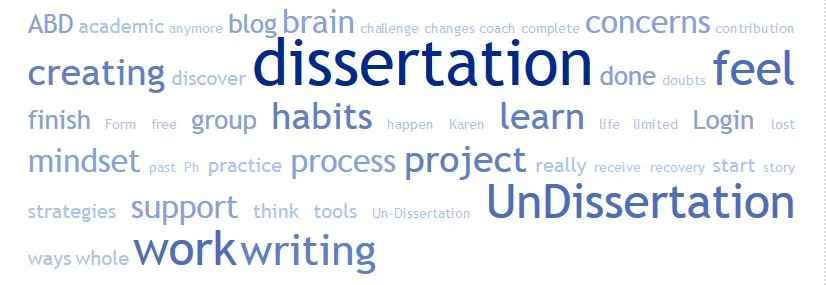Creating Your First UnSchedule
The principle of the UnSchedule is to schedule in all your other commitments, self-care, leisure, etc. and then use the time "left over" for the D-project. Don't give up your life and burn yourself out -- you want to keep yourself healthy and energized and re-fueled in order to have the mental and emotional energy to also do the D-project.
The side benefit is learning to create "work spaces" and work habits that are focused and realistic and carry that over into the rest of your post-PhD life ;-)
So here we go...
1. Start by reviewing the time log data you already collected (at least 3 days' worth, so you have a variety of activities). Note anything that catches your eye in terms of how you've been spending your time and how you might re-organize some elements (e.g., collecting all your phone calls) to create some blocks of time.
2. Summarize how long things take, using realistic estimates from your log. (Things almost always take longer than we hope or expect. Plan longer than you expect and enjoy the "found time" if you're quicker than you planned.)
3. Now schedule into a new blank time log:
- committed time (e.g., meals, sleep, meetings)
- free time (e.g., recreation, hobbies, reading)
- social activities
- health activities (exercise,self-care)
- routine structured events (appointments, classes)
4. Got them all in? Stop there. DO NOT schedule in dissertation time. Do NOT expect yourself to block in huge amounts of time on that one project and to let other things slide.
5. Instead, look at the limited time now available. Use those blocks as a time clock and record when you "punched in and out" only AFTER doing 30 minutes of UNinterrupted time. That's all you've got -- make it count ;-) Try using the blocks before socializing or something fun to do the 30min segment - to be self-reinforcing ;-)
6. Give yourself one full day per week without working on this project.
7. Please share strategies that help you make use of those time segments.
8. Remember to:
- Focus on Starting
- Choose one Small Step that moves you forward
and then go on to something else you enjoy more or give yourself a little reward.
As some of my community have noted, getting Started often lets us keep going more easily, so do commit to Starting rather than finishing anything specific.
8. Keep track at the bottom of your UnSchedule how many of these quality 30min you spent in any day and over the week.
9. Keep Starting. And avoid ending at a "block" -- stick with it for another 5 min or so to create some brainstorming about where you could start again next time.
